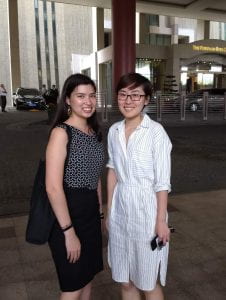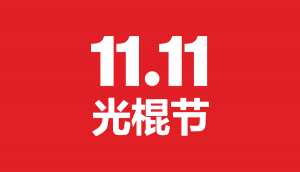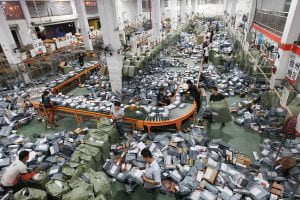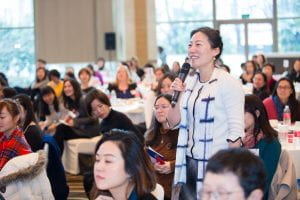Let’s face it: a lot of people move to China for a career in the corporate world. Since China’s opening in the late 20th century, private businesses have been gaining stronger positions in the economy, leading many expats and Chinese natives to pursue corporate careers. Recently, I’ve had the opportunity to meet with two Wellesley alums who work in this brave new world.
Shirley Wu is a Shanghai native, working as a market analyst at LVMH (Louis Vuitton Moet Hennessy): a French luxury goods conglomerate with several branches in the Asia Pacific region. Shirley analyzes consumer trends for her company’s perfumes and cosmetic division and keeps her eye on competitor activity.
Even though Shirley is the second makeup industry professional I’ve interviewed, China’s makeup market is actually still in its childhood when compared to more developed markets in Korea and Japan. Most older women in China don’t wear any makeup (in contrast to near ubiquitous usage in other East Asian countries) and the women who do tend to favor skincare and lotion over more conventional makeup, like eyeshadow and lipstick. Because countries like Japan had an earlier start in international business, Chinese makeup companies face greater difficulty competing with more established, foreign high-end brands. That’s where people like Shirley step in with market research to decipher how best to appeal to potential consumers.
One emerging trend is the desire to know the exact ingredients in makeup products. This trend is replacing a former move towards “all-natural products” because people have realized that “natural” is a very subjective term and does not always mean “safe.” Instead, customers just want to know what is in their makeup. As a result, brands have been emphasizing better product labelling, and in some cases, naming products by their main ingredients.
Additionally, some brands are introducing environmentally-friendly packaging; instead of gifting every purchase in a big box, customers can opt for smaller, less wasteful packaging, and receive a small, free sample in return. Strategies like this work especially well for a Chinese audience that has grown up learning values of frugality and economy.
As I learned through my discussion with Shirley, makeup companies aren’t the only ones who appeal to the Chinese market’s desire to save money and earn free products. To draw more users to its mobile shopping platform, execs from e-commerce giant Alibaba created a shopping holiday on November 11, known as “Singles’ Day” or Guanggun Jie, where if someone downloads the Alipay mobile wallet app that day, they receive free gifts. Not only does this strategy encourage older, less tech-familiar customers to download apps; it’s also a major business success. On Singles’ Day 2017, Alipay processed 256,000 transactions every second, according to The Guardian. In business, it sure helps to know what makes your audience tick.
Knowing one’s audience has been Sarah Kochling’s job for nearly thirty years. My second interviewee has worked in marketing, product innovation, and development for companies like Proctor & Gamble and Johnson & Johnson, and now she heads her own consulting firm: Shanghai Blossom Innovation. Similar to Shirley’s work, Sarah uses consumer and market insights to develop products for business clients (largely Fortune 500 companies) which can range from electric cookers to an app for ethical decision making. After looking through PowerPoint presentations and data spreadsheets, Sarah connects dots between recent trends, asking herself why current data shows what it does, and how she can use these patterns to create marketable concepts.
In terms of her own business insights, Sarah strongly believes in the power of storytelling. Whether one is trying to sell a product or a social value, people remember things more vividly if given a potent, contextual narrative. According to Sarah, telling a story is an effective way to implant a lasting impression.
Another important part of Sarah’s career has been empowering female professionals by establishing the Women’s Executive Network (WEN), a platform within the American Chamber of Commerce in Shanghai. WEN holds conferences and other networking opportunities for high-ranking professional women, helping them gain corporate/non-profit board memberships and build a strong women’s network. China has a high female labor force participation, thanks to improved female education, the one-child policy limiting childbirth, and, according to Sarah, Chinese women’s better salary negotiation skills, but the country still lacks gender equality in the C-suite. WEN works to raise awareness of this gender disparity and encourages women to help each other reach these final, prestigious positions.
So, how does one do business in China? Obviously, there’s a lot left untouched here, but one place to start is to study cultural values and see where they intertwine with market trends. Knowing how customers think and what they believe will always be key to selling an idea to them. And if you want to get ahead in your career as a woman, nothing beats a strong women’s network that has your back.






Your guidance is much appreciated. Thanks a lot!
Dl-Limonene